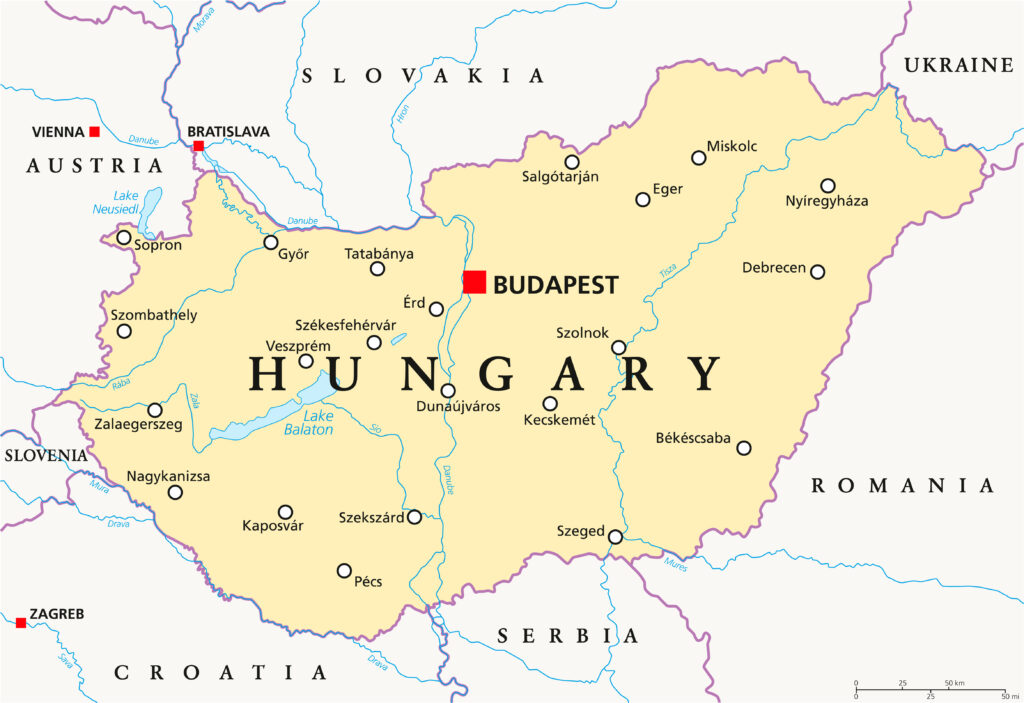Nine cases of foot-and-mouth disease have now been confirmed in Hungary and Slovakia, as the Hungarian government steps up its efforts to contain the disease.
Hungary’s first case was reported on March 7 at a dairy farm in Kisbajcs, in Győr-Moson-Sopron County, in western Hungary. A second outbreak in Hungary was confirmed on 26 March at a dairy farm in Levél, Győr-Moson-Sopron, about 50km from the first farm in Kisbajcs.
Its proximity to the Austrian border meant the surveillance zone extended into Austrian territory, prompting Great Britain to extend import restrictions to Austria.
On 2 April, Hungarian Agriculture Minister, István Nagy, confirmed cases on two more farms, the NFU’s Brussels-based BAB office reports. Both are in Győr-Moson-Sopron county, close to the Slovakian and Austrian borders. According to press reports, one farm has 1,000 cows and the other, 2,500.
The source of the outbreak remains unclear, but the Hungarian National Reference Laboratory has identified the virus as O serotype. Its sequence shows the highest similarity with a strain isolated in Pakistan in 2017-18 (98- 99%), but it differs from the strain detected in Germany in January 2025.
Reuters has reported Hungary has deployed soldiers and launched new disinfection measures to help contain the outbreak. “We are making every effort to prevent any additional outbreaks,” Hungarian Agriculture Minister Istvan Nagy said.
Reuters also reports that Austria will close two smaller crossings at its border with Slovakia and 21 at its border with Hungary from Saturday, in a bid to keep FMD out, the Interior Ministry said on Thursday.
Slovakia outbreaks
Five farms have been infected with FMD in Slovakia. A fifth farm in Plavecký Štvrtok, located 70 kilometers from the earlier affected farms, was confirmed to have the virus on March 30. Slovakian Agriculture Minister, Richard Takáč, said the farm has had contact with the infected farm in Lével, the NFU’s BAB office said.
Slovakia’s first case was reported on March 20, and the first four affected farms were in the south of the country, close to the border with Hungary. The region is particularly important for Slovakian livestock production and the Slovakian authorities declared a state of emergency on March 25.
The serotype matches with the cases in Hungary. Control measures are being implemented by Slovakian authorities, including protection zones and surveillance zones and the movement of animals is prohibited.
The Ministry of Defence of the Slovak Republic has bought a supply of 10,000 vaccination doses, and affected animals will be vaccinated and culled, the BAB office added.
Import ban
The UK government has banned imports of susceptible livestock and their products from Hungary, Slovakia and Austria.




